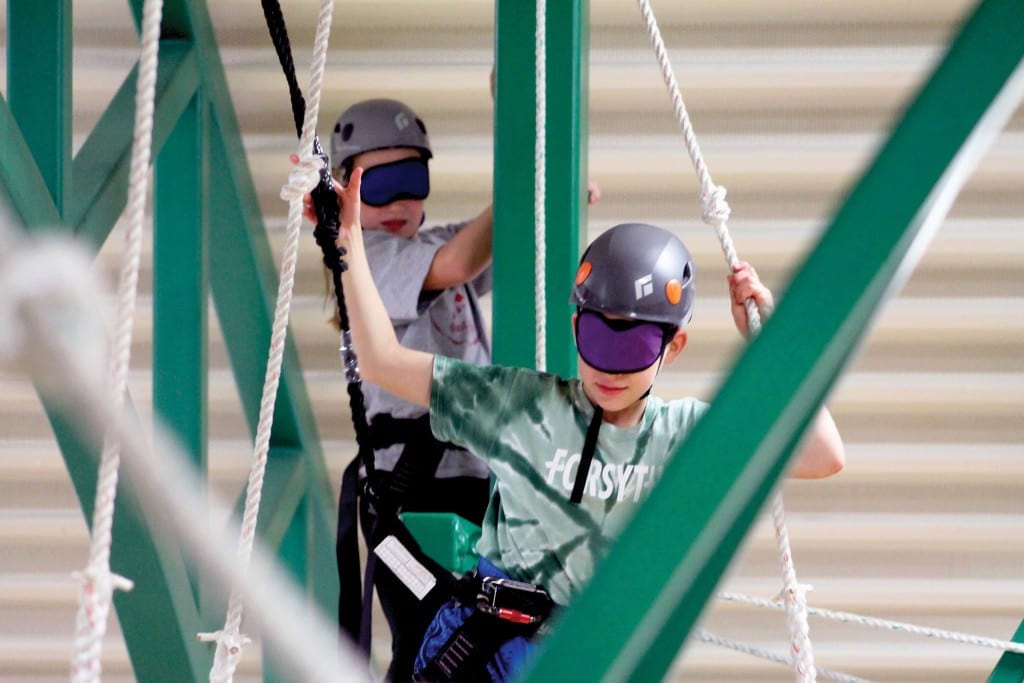They might be 30 feet up, suspended (in a harness) on a cargo net. They might be doing the foxtrot, the rumba or the national dance of the Philippines. They could be spinning a jump rope so fast it blurs to nothing. This is P.E. at Forsyth School, where fitness in both brain and body is emphasized.
Physical education teachers Justin Harris and Shelley Stone say the school is unique in its focus. It has more teams in the Clayton Parks and recreation sports leagues than any other school in the area, Harris says, and offers a special high-ropes course that is unparalleled. The P.E. curriculum also believes strongly that dance has an important role to play in the overall development of young people. “It often is left out of physical education programs,” Stone says. “But it’s a wonderful way to get the brain and body working together.”
Forsyth prides itself generally on what it calls its ‘Challenge Curriculum,’ which is nowhere more evident than in the gym’s 10-year-old Adventure Center. Here, the 30-foot ceiling is strung with ropes and nets, and a wall is fitted with climbing holds. Not only do children climb rope ladders and walk the high beam, but they sometimes do so blindfolded. “It’s not just physical, it’s mental,” Harris says. “We want them to feel comfortable feeling uncomfortable.” Stone adds: “You’re 8 and you’re 30 feet off the ground; it’s incredible to see!”
Each P.E. class begins with high-intensity ‘functional movement’ (pushing, pulling, jumping and lifting), which strengthens the body and improves flexibility, balance and stamina. Fifth- and sixth-graders have 45 minutes of P.E. each day, while the lower grades have 30. Eighty-five percent of students play on a Forsyth league team.
At the end of the year, a rite of passage takes part in the gym, when sixth-graders—in helmets and harnesses—are hauled to the ceiling by classmates for a symbolic walk across the high beam. While they are up there, the students write their name in a book, along with a message for friends and family. “For these kids, it’s like climbing Mount Everest and leaving a little something behind,” Stone says. “It’s very moving. It’s so Forsyth.”
Forsyth School, an independent elementary day school, offers a challenging academic and athletic curriculum for children age 3 through sixth grade. Pictured on the cover: second-graders play a relay game with coach Justin Harris. For more information, call DeAnn Pomatto at 314.726.4542 or visit forsythonline.com.
Cover photo by Michael DeFilippo | Cover design by Allie Bronsky
